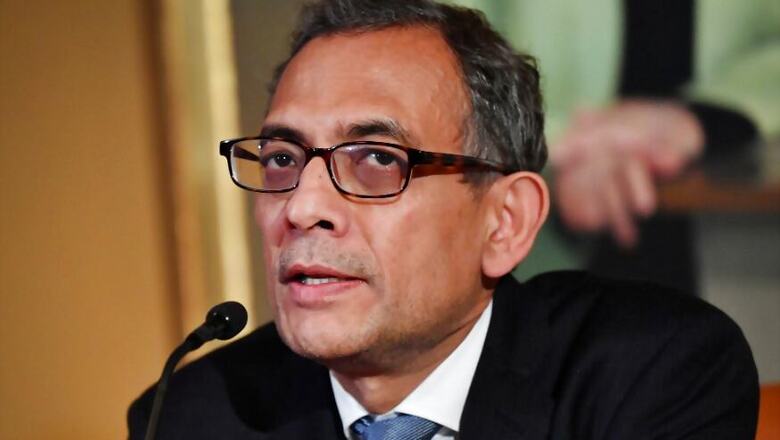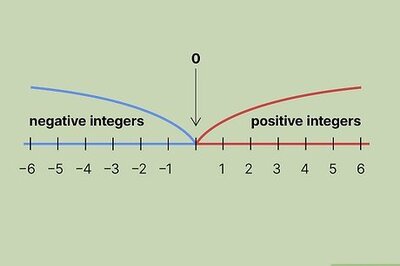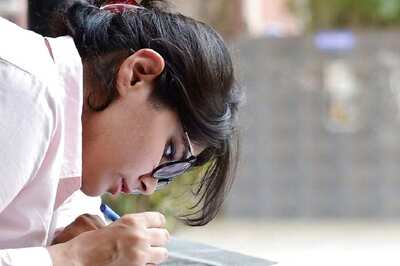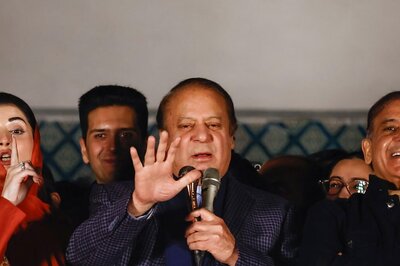India Facing Massive Demand Shock, Should Worry Less About Financial Prudence, Says Abhijit Banerjee

views
Kolkata: Nobel laureate Abhijit Banerjee has said that the relief package of Rs 1.70 lakh crore for poor announced by the central government is “too small” considering the present situation that has arisen in the country due to the outbreak of novel coronavirus.
“I feel the amount is too small right now keeping the situation in mind,” Banerjee said when asked whether Union Finance Minister Nirmala Sitharaman’s slew of economic measures amid coronavirus crisis is enough to feed crores of poor and workforce at unorganised sectors in India.
On March 26, Sitharaman announced Rs 1.70 lakh crore relief package under Pradhan Mantri Garib Kalyan Yojana (PMGKY) for the poor with an aim to help them fight against the deadly coronavirus. “Today’s measures are intended at reaching out to the poorest of the poor, with food and money in hands, so that they do not face difficulties in buying essential supplies and meeting essential needs,” Sitharaman had said while addressing a press conference in Delhi.
Banerjee, who is currently the Ford Foundation International Professor of Economics at the Massachusetts Institute of Technology (MIT) said, “It (relief package) would need to be ramped, especially since only a fraction of the funds being designated are a net addition to the total pro-poor spending.”
Highlighting the areas which the Union Finance Minister should have given more focus on but completely overlooked, the noted economist said, “I do not know that she has over-looked anything specific but right now we are trying to stay close to business as usual and using the current models as far as possible.”
He further said, “But at a time, where even the International Monetary Fund (IMF) thinks business will not work as usual, we should worry less about financial prudence (planning well in advance and investing in areas with possibility of high returns). We are facing a massive demand shock and most Organisation for Economic Co-operation and Development (OECD) economies are comfortable with large-scale quantitative easing (printing money) and so should we.”
The OECD is an intergovernmental economic organisation with 36 member countries, founded in 1961 to stimulate economic progress and world trade.
When asked what worst the Indian economy is staring at if lockdown continues even after 21 days and why the common man should be most worried, he said, “The Indian economy, like most economies, is facing a massive challenge. There is a collapse in world trade, a collapse in domestic demand too as people staying indoors and the construction work has been shut, resulting fall in incomes which will spiral into lower incomes all around and therefore, greater spending. This is why the United States is going for two trillion dollar boost.”
Ruling out famine like situation in future as traders and working class are expected to be worst affected, he said, “There is no reason for there to be a famine. The government needs to be proactive to prevent it and it is entirely possible.”
On his stand on proper social distancing and complete lockdowns is hard to achieve, he said, “Just because there is so little space, people are not used to being cooped up in tiny spaces, especially when it's hot. I don't blame people for finding it hard but we should adjust our expectations about their compliance with the regulations.”
Banerjee, who is an alumnus of Presidency University in Kolkata and also studied at Jawaharlal Nehru University (JNU) in New Delhi and Harvard University in Cambridge, Massachusetts, has offered his help to all the state governments in India and said, “We hope to work with West Bengal government and other interested state governments on how to better craft social messaging to make sure that everyone gets the right message.”
In 2003, he founded the Abdul Latif Jameel Poverty Action Lab (J-PAL), along with Esther Duflo and Sendhil Mullainathan, and he remains one of the lab’s directors.
Banerjee is a former president of the Bureau for the Research in the Economic Analysis of Development, a Research Associate of the NBER, a CEPR research fellow, International Research Fellow of the Kiel Institute, a fellow of the American Academy of Arts and Sciences and the Econometric Society, and has been a Guggenheim Fellow and an Alfred P. Sloan Fellow and a winner of the Infosys prize.
He is also an author of a several articles and books, including Poor Economics, which won the Goldman Sachs Business Book of the Year. He is the editor of three more books and has directed two documentary films. He also served on the U.N. Secretary-General’s High-level Panel of Eminent Persons on the Post-2015 Development Agenda.
Banerjee, along with his wife Esther Duflo, won the 2019 Sveriges Riksbank Prize in Economic Sciences for their experimental approach to alleviating global poverty.



















Comments
0 comment